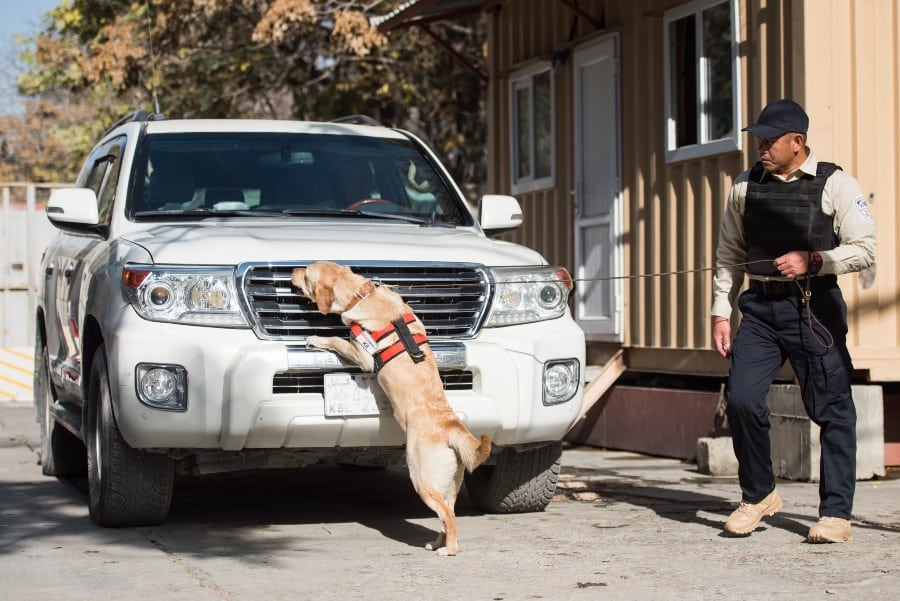The new frontier of government security


James Thorpe
Share this content
Experts at GardaWorld look at how we can navigate complexity with innovation.
Reflecting on over two decades of experience in the protection of the diplomatic sector, it becomes clear that today’s global landscape is a terrain of multifaceted challenges for the government security sector.
Standing at this critical juncture, the sector is tasked with navigating evolving political landscapes, escalating social dynamics and the impacts of environmental extremes.
This complex backdrop underscores the need for a recalibration of security strategies – a transformation that calls for not just innovation, but a high degree of adaptability to remain effective in an unpredictable world.
The evolution of government security over the past two decades has been significant and the key to navigating this intricate environment lies in understanding emerging trends, effective strategies and the increasingly integral role of the private security sector.
Article Chapters
ToggleEmerging trends in government security
- Digital transformation – the integration of AI and ML in threat detection and response is revolutionising the sector. Predictive analytics are now essential tools for forecasting security breaches or unrest, allowing for pre-emptive measures
- Integrated cyber-physical security systems – as the boundaries between physical and cybersecurity blur, integrated systems combining surveillance, access control and cyber-defences have become crucial. This holistic approach ensures robust security against both physical intrusion and cyber-attack
- Resilience and sustainability – the focus on resilient and sustainable security solutions is more pronounced than ever. In volatile environments, quick adaptation and recovery from disruptions is key, alongside environmentally sustainable practices that reflect contemporary societal values
- Drone technology – UAVs are transforming surveillance and reconnaissance. In challenging terrains, drones provide a safer alternative for intelligence gathering and activity monitoring
Effective strategies for government security
Risk assessment and customisation – tailoring security solutions to specific contexts requires comprehensive risk assessments considering political, social and environmental factors. Critically, however, is the in-depth understanding of the diplomatic client and the particular nuances of their government’s objective in the specific region. This customisation ranges from strategic planning to on-the-ground operations, ensuring that the services provided align with the mission and objectives.
Local intelligence and community engagement – GardaWorld pioneered a service platform that maximises the expertise of local personnel, knowledge and cultural awareness upheld to the highest international accredited standards. The accumulation of a wealth of institutional knowledge, particularly from long standing involvement in various regions and contexts is an invaluable asset in planning and executing security strategies. By understanding past events, regional trends and operational precedents, private security can anticipate challenges and develop proactive solutions.
This foresight is crucial in maintaining the safety and effectiveness of diplomatic missions.
Employing skilled personnel – the calibre of personnel in the private security sector significantly influences the success of diplomatic missions. This requirement spans all levels of operation, from frontline staff to management and strategic planners. Skilled personnel are not just trained in security measures but are also adept in understanding the complexities of diplomatic environments. They must possess the ability to make quick, informed decisions in high pressure situations and demonstrate a high degree of cultural awareness and sensitivity. The training of these individuals is a continuous process, adapting to the evolving nature of global security challenges.
Innovative technology – adopting advanced surveillance systems and AI-powered analysis tools provides a significant advantage, particularly in more remote or less developed regions, but it’s crucial to balance technological adoption with data privacy concerns and ethical implications.
Partnerships and collaboration – collaboration with local authorities, international organisations, and various stakeholders has enriched our security framework, bringing diverse perspectives and resources. This includes our annual recertification to the five leading industry standards as well as our strict adherence to the Voluntary Principles on Security and Human Rights (VPSHR), the UK Modern Slavery Act and the UN Global Compact Statement.
Continual monitoring and adaptation – the dynamic nature of security, especially in challenging environments, demands continual monitoring and the flexibility to adapt strategies as needed.
The role of the private security sector
In the intricate tapestry of global security, the private security sector emerges as a crucial facilitator for diplomatic missions, particularly in regions marked by conflict or post-conflict unrest.
This role extends far beyond mere provision of security services; it encapsulates a deeper understanding of the operational context, cultural sensitivities and strategic objectives of government institutions.
And it is multifaceted and deeply impactful.
It requires a blend of operational expertise, cultural intelligence, strategic foresight and a commitment to empowering host nations.
Through this holistic approach, private security plays an instrumental role in facilitating global diplomacy and stability.
The ultimate goal of private security in these contexts is to facilitate the normal functioning of government institutions.
This support extends beyond physical protection to include aiding in the creation of a stable and secure environment where diplomatic activities can proceed unimpeded.
Engagement with local communities is a critical aspect of this role.
By building relationships and understanding local perspectives, private security can bridge the gap between foreign diplomatic entities and host nations, fostering an atmosphere of trust and cooperation.
The long term objective for private security providers in these settings is to assist in the development of the host nation’s capacity to manage its own security needs.
This involves training local security forces, sharing best practices and gradually transferring responsibilities in a manner that builds confidence and competence.
The aim is not to create dependency but to lay the groundwork for sustainable, independent security solutions managed by the host nation.
The right blend
As the government security sector navigates new threats and evolving scenarios in complex environments, harnessing technological advancements, customising strategies to specific situations and fostering partnerships is critical.
However, the journey demands continuous learning, adaptation and innovation.
The focus must remain on creating effective, resilient, sustainable and community respectful security solutions.
This intricate path is navigable with the right blend of technology, strategy and human insight, marking an evolution in the approach to government security in today’s global landscape.



